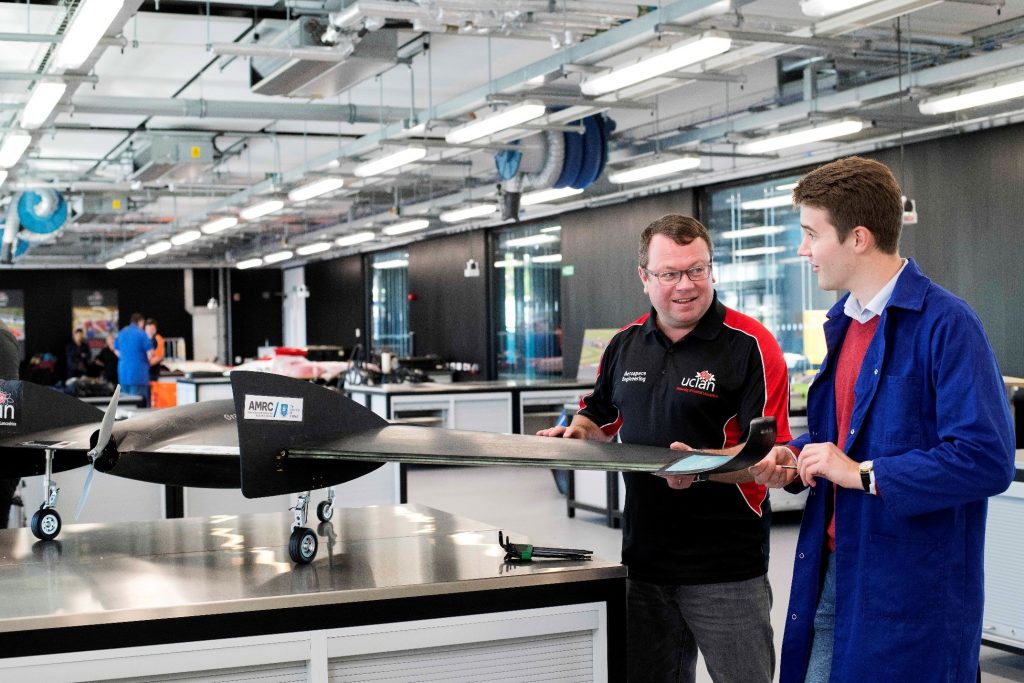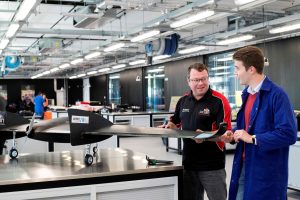The KEF affords universities an opportunity to highlight the impact of Knowledge Exchange, but at Greenwich and across University Alliance, we believe its true social, economic and environmental benefits can only be realised through collaboration, within and across universities.
Last week Research England released the conclusions of their consultation on the upcoming Knowledge Exchange Framework (KEF). For universities, the KEF is an opportunity to highlight the vast benefits that knowledge exchange activities bring, however given the breadth of these activities, this isn’t without its challenges.
Knowledge Exchange can incorporate a wide range of activity, from community engagement, short courses and apprenticeships right through to start-up incubator spaces and spin-out businesses. However, for universities, resource limitations mean it often isn’t possible to deliver the full range of potential KE activities, and they must prioritise which aspects they take forward. This differential approach means it can be difficult to both concretely define “Knowledge Exchange” and also to accurately capture the true value of the full range of activities the sector engages in under this umbrella.
Thankfully, the KEF should create a framework for doing so, and raise awareness of the value of knowledge exchange activities in and of themselves. However, we also need a means for capturing and promoting the many additional benefits the agenda can bring to our universities, particularly for pedagogy, curriculum, and the student experience. Having a confident assertion of the wider value of KE, especially beyond its monetary return, will be essential to centering it as an activity within institutional priorities.
The significant potential impact of these various KE activities, coupled with a scarcity of resource means that our work more than ever needs champions booth within and beyond our institutions.
Because of this, developing a smooth path for businesses to engage with universities effectively is a critical part of successful knowledge exchange. Before joining Greenwich, I worked for over twenty years on the industry side of Knowledge and innovation meaning I know how complex it can be to discover routes into partnership. We therefore need an effective response to this, both within institutions and across the sector.
Where existing relationships are thriving and delivering true benefits to academia, industry, and the economy and society more broadly, we need to be sure that we work to capture the value on an ongoing basis to ensure success is recognised and best practice is shared. However, this value must be viewed holistically. The cultural benefits afford by the arts may be more difficult but are not impossible to measure. The business world for example have defined ways of measuring both tangible and intangible assets, which we could perhaps learn from.
Finding Collaborative Solutions
As indicated above, the roll out of a framework to measure the value of knowledge exchange is complex and not without its challenges. I, and my colleagues across University Alliance, see collaboration as key to mitigating against these challenges. This week, I chaired the inaugural meeting of the Knowledge Exchange and Enterprise Network, hosted by Greenwich at our Powerhouse Innovation Hub. Our aim was to share expertise and best practice in order to identify joint solutions to commonly faced problems. This will enable our universities to both respond to the KEF agenda and contribute meaningfully to its development.
Practically, this network will serve as a forum for developing concrete steps and actions to facilitate knowledge exchange and increase capacity for forging new partnerships. This network will enable universities to jointly submit funding bids and respond to consultations, share resources and develop collective projects. Providing a single point of contact for twelve leading universities and consolidating information gathering for industry, government and partners will also help simplify and speed-up processes. Universities can also form partnerships for collaboration, not least as a conduit for funding. After all, resource remains scare and to make the best use of available provision we will need to work together, streamlining processes and consolidating our strengths.
As well as collaborating across universities, working closely with colleagues at our own institutions and with outside partners, will be key to our success. This is because this network aims not only to respond to the KEF, or even to shape its progression, but to center the knowledge exchange agenda within the wider priorities of our institutions and the government. In discovering meaningful impact measures, our work could have a significant influence on other institutional agendas. Similarly, the work our teams do every day to invest in our local communities, sharing skills with local business and supporting the growth of start-up companies should place us at the heart of the government’s place-based agenda.
As ever, to make this case compellingly though, we need to work together.





